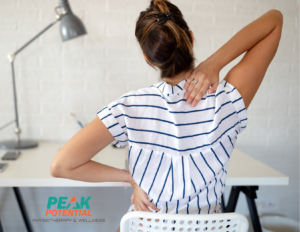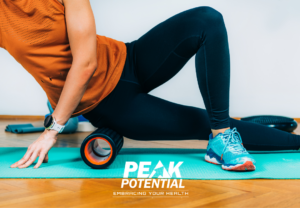
One day you’re pleased with yourself for finally painting the guest room or spending the full half hour on the rowing machine. The next day you can barely reach up to brush your hair because you’re sore all over. You probably have a case of delayed onset muscle soreness.
That achy feeling is caused by microscopic tears in your muscle tissue, which lead to inflammation and discomfort. It’s most likely to appear about 1 or 2 days after you engage in a strenuous activity or a task that you’re not used to doing. Despite the discomfort, it is actually beneficial for the body. The inflammation is blood and nutrients rushing to the area to repair any damage and allow your body to build itself back stronger.
While it’s nothing serious and will go away on it’s own in a few days, we know you would rather this happen sooner rather than later. Unfortunately, the tips you get from well meaning friends, the guy next to you at the gym, or the online health magazine may not be the best advice. I’ve heard some pretty bad ones over the years.
As doctors of physical therapy we are experts in movement and recovery, so let us give you the expert advice you have been looking for. There are some things that will help relieve the pain and some things you’re better off avoiding.
Here Is the Worst Advice We Hear for Treating Sore Muscles
-
Become a Couch Potato
Excessive inactivity will just prolong your soreness. Our muscle must move and stretch in order to heal properly. In addition, daily conditioning is always better for your body than popping into the gym just once a week.
Try working a different muscle group or try a restorative activity like yoga or a long walk. The key – even when you are sore, get up and move the best you can.
-
Go Hard Again
The other extreme from no activity is too much activity. If you are sore, your muscles do need time to recover. If you go hard at the gym everyday of the week despite soreness, you are going to be prone to injury and actually lessen your performance.
We know that strength is not build at the gym while we are working out but that night or the next day when the muscle is able to rebuild stronger. You must allow for recovery in order to see results.
-
Assume All Pain is the Same
Muscle soreness or discomfort is not the same as severe pain. We do not believe in the saying “no pain, no gain” here. With that mentality, all you will get is more pain.
Sudden pain requires a different approach than late onset soreness. If this is the case, stop what you’re doing and contact your health care provided to assess for a muscle strain or tear.
-
The More Your Hurt the Better the Workout
Some people believe that you have to be sore in order to have a great workout. But you actually shouldn’t be sore after every workout. If you are, it’s a sign you aren’t allowing for adequate recovery and you are not going to see the results you are working so hard for.
Muscle soreness is normal when you push to a higher intensity you are not used to or work muscles that you aren’t accustomed to using.
-
Worry About Lactic Acid
Experts used to believe that soreness was caused by lactic acid buildups. Research now shows that lactic acid dissolves almost instantly after exercising. It is released into the muscle as byproduct of carbohydrate utilization.
When you feel a burn in the muscle during a workout, this is a result of lactic acid. However, it is quickly shuttled out of the muscle to the liver. Thus, strategies used to decrease lactic acid production hours after you train aren’t going to do you much good.
Don’t feel bad if you have fallen for some of these muscle soreness mistakes. Given the astounding amount of information available now through digital media, it’s easy to get off course.
Now that we’ve covered the mistakes, next week we will talk about what TO DO to quickly recover from delayed onset muscle soreness, because to stay healthy and get the body you want, you really need to listen to an expert. If you’ve got a question about health and fitness, don’t be afraid to ask us.
Want more information on staying fit, getting strong, and recovering faster? Download our FREE REPORT today in order to learn all our secrets.
How to Get Fit & Stay Fit: 7 Secret Recovery Strategies That Pro Athletes Know and Use
Click the link above and you we will send you this valuable information, do it yourself strategies, and expert tips absolutely free.




